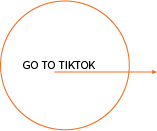Buyers Guide
Buyers Guide
The process of buying a property includes few basic legal steps that need to be followed in Dubai.
- Establishing buyer and seller agreement
Once you have found a property that you want to invest in, you must consult a real estate agent. They will help you communicate, negotiate and outline the terms of sale with the owner. - Signing an agreement for sale
Once all the details are finalized, it’s time to sign the agreement of sale, also known as the Memorandum of Understanding (MoU). Upon signing this, it is standard practice in Dubai for the buyer to pay 1) a 10% deposit of the property value to seller if it is developer. Preowned property purchases are based on cash or mortgage. - Applying for a No Objection Certificate (NOC)
To allow for the transfer of ownership you must apply and pay for a No Objection Certificate from the developer of the unit or the Existing owner you are purchasing from. This will allow for the transfer of ownership. Once all outstanding service charge payments are finalized the developer will be able to provide an NOC. - Transfer of ownership with Dubai Land Department
Once you have obtained the NOC, you will need to meet the seller at the Dubai Land Department (DLD) to have a new title-deed drawn up. Before the title-deed is provided, DLD requires the buyer to make a payment of the property price in the form of a cheque. This cheque should be made payable to the seller on the date of the transfer.
An average property transaction in Dubai takes around 30 days to complete from the date on which the Agreement for Sale is signed.
The primary market purchasing fee in all DLD Registration Trustees offices is AED 4,000 for transactions over AED 500,000, and AED 2,000 for those below this amount. Fees are payable in cash and paid by the parties as agreed. For secondary market purchases, total fees include a 2% commission fee (for the sales agent or broker), the NOC fee [around AED 5,000 max] and a transfer appointment fee [AED 4,000].
You will need to apply for a mortgage through one of the banks in the UAE. Mortgage registration charges payable to the DLD amount to 0.25 per cent of the loan value, plus AED 290 as a standard charge.
The following documents are typically required for UAE residents to receive mortgage approval:
- Passport and visa copy of the purchaser.
- Copy of Emirates ID.
- Proof of current address such as Ejari and Dewa bill.
- Salary certificates or evidence of regular income.
- Bank account statements for three to six months, which reflect the corresponding salary credit.
- MoU for the sale of the property.
- Title deed of the property to be purchased.
- Seller’s passport copy.
- No Objection Certificate from the developer.
The UAE government implemented a landmark policy by introducing value-added tax (VAT) at a rate of five per cent, effective from January 1st, 2018.
The VAT law states that all real estate transactions, apart from the sale of vacant commercial properties and commercial property leases, are either not subject to or exempt from the tax.
In other words, there is no VAT charged on the rent for residential accommodation. However, it is possible that a residential tenant benefits from other services – either included in the rental agreement or in addition to the agreement – that are subject to VAT.
Contact us on +971 4 2999804 or send your request through the following link so we can help you better.
Can I buy a house in Dubai and get a residency visa?
Investors, home owners and specialists, such as doctors and engineers, can receive UAE residency visas valid for up to 10 years as per the law announced in May 2018 by the UAE government.





